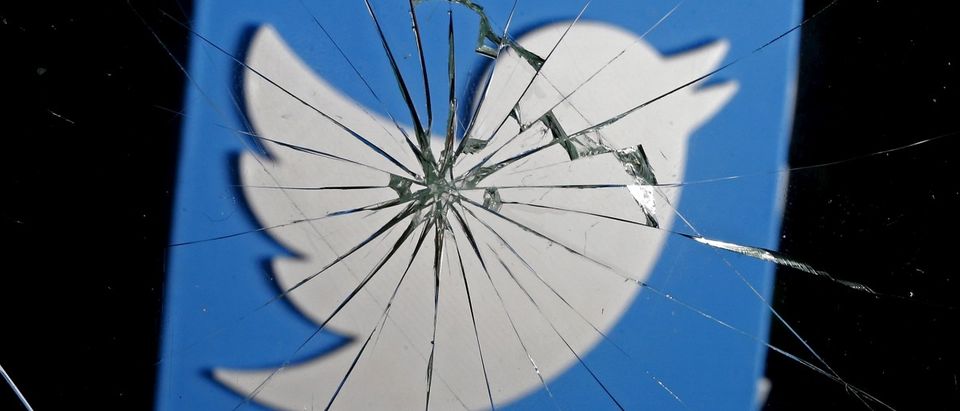It began without notice or warning: reports coming in of people suddenly banned for their beliefs, questioning journalists having their IDs unverified, minority voices pushed off to the shadows. This led to a general fear all around. In the background, war drums were beating. After several days of sudden bold strikes, there’s really no question: Twitter — the company — is waging a total ideological war to narrow the range of permissible thought allowed on the service.
The latest target was author Robert Stacy McCain. His account was erased without warning or explanation of any kind, just a note that it “will not be restored. Thanks, Twitter.”
Actor Adam Baldwin deleted all his tweets in an expression of support for McCain. Then, even an account for McCain’s book was erased. Everyone’s on edge, many more bans are expected — the news has brought anger, vigilance, and hashtags.
Yes, #RIPTwitter — but #FreeStacy? Stacy is already free. The ones who need to be freed are the people who’re still tweeting that hashtag on a closed system that hates all they stand for. Tweeting your outrage is no way to fight it — even the hashtags stopped trending once Twitter got wind of them. They should be doubleplustrending by now, but they won’t even autocomplete.
Twitter’s new Ministry of Truth has no problem with allowing all the obscenity, perversion, blasphemy, and profanity that infests the site. Just like in 1984, they encourage the proles to keep busy engorging themselves on it. Crude humor of the saddest possible kind has always been highly regarded there. It’s like the whole thing’s set up to keep the tools down — a dull knife sits unused, and is basically harmless.
But this isn’t Orwell’s old book anymore. This is a new genre, nonfiction horror, and people on corporate social media everywhere are being shushed and banned and bigbrothered away for the color of their opinion and the diversity of their thoughts. Even offline they’re being coerced to obey or be punished. Baker, bake the cake.
Maybe social media was once useful, to a point, for getting your message out to the world — but those smoke signals won’t rise anymore. The air is too stifling, and the sky’s clouded with angst.
“They’re taking your energy and you’re getting nothing in return,” Matt Drudge warned in a rare public outburst last year. “This is designed to demoralize the individual.”
So every tweet and every post you make, they get something from you. They sap your life-force, and you freely drip it out to them. Why? If Twitter’s going to hinder, throttle, freeze, purge or ban you for your beliefs or ideas, then what good is it, anyway?
I’ve been ambivalent about that for a long time. Like Drudge, I’ve seen this coming. A slow metamorphosis, the whole technology of it has changed. It fundamentally shifted some years back with the insertion of an invisible key, the carriage return — Enter Enter Enter brought Twitter out of time and into space. That was the endgame. Suddenly a tweet was no longer a timestamped digital text message maxed out at 140, but it became a boxed-in canvas, a tiny picture: an arrangement in space. Great for the short poetic forms I love like flash poetry, haiku and senryu, but no longer a text message as once intended.
Twitter probably peaked with Teju Cole, an early adopter who left it two years ago after exhausting all possibilities — who knows, but I bet you he’s bored and will never be back. In the end, ain’t no “Twitter fiction” worth reading, though it’s noble for trying. The most interesting thing on Twitter now are the literary bots, like the Shakespearean @Pentametron, whose exquisite iambic retweets of unsuspecting tweeple I could recite for hours — if, that is, the Ministry still permits it.
One of the few positive elements of the Internet age is the “open source” software movement, and I used to feel that where open source failed us is social media. But maybe that’s changing — open source alternatives are out there and now that Twitter’s so openly focused on doublethink and crimestop and prolefeed, these new sites are starting to really pick up.
No, they’re still not quite Twitter, but face it: Twitter isn’t Twitter anymore. So go on and try them, mad voices of the net: it might be a move you’ll have to make, anyway, because your nest isn’t safe anymore, don’t you know there’s a war on?


